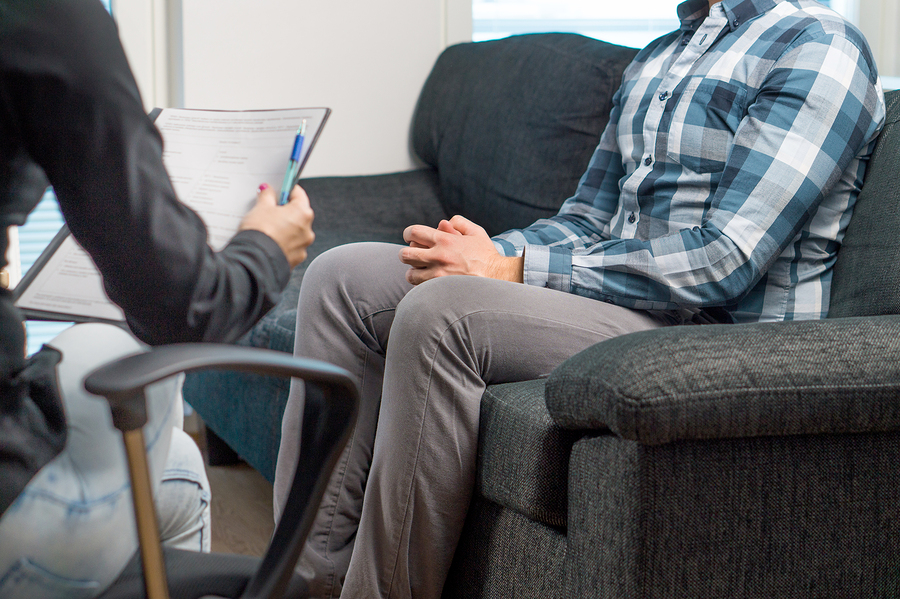
The first time I saw a therapist, I really lucked out. I was dealing with depression after the birth of my first child and wanted to learn how to better manage the stress of my new life as a working mom. She came highly recommended by friends from my church. The first time I sat in her office, I was sure it was a good fit. For two years, I saw her on an almost-weekly basis. Then suddenly, my circumstances changed. My husband lost his job, and I lost my insurance. I was left looking for a new option.
It was during that season of unemployment that I learned that finding a therapist isn’t typically easy. Outside of finding someone who would accept Medicaid, I needed someone with experience working with people who specialized in areas relevant to me, and I wanted someone I connected with enough to feel comfortable sharing intimate details of my life. If you’re on the hunt for a great therapist, these are the steps that worked for me.
I started by researching their training.
There are many different kinds of therapists and the training to become a counselor can vary. Some might hold a doctorate in psychology (PsyD), while others might have a master’s in social work (LCSW). Ministers with specific training can also serve as a counselor.
Before you ever land in someone’s office, it’s a good idea to know what type of clients they work with. Personally, I was looking for two things — someone whose specialties include postpartum mood disorders and someone who works with people dealing with grief and loss.
If you happen to know what kind of therapy you’re looking for, this is also something to look into. Are you looking for someone trained as a cognitive behavior therapist? Is it important that the person you see be an expert in EDMR? These are the things to consider before you make an initial appointment. Most therapists have websites where they list out their specializations. Websites like GoodTherapy and Healthgrades provide information on therapists in your area.
I asked for referrals.
After I lost my insurance, I asked around for suggestions from friends. I had a few friends who had mentioned being in counseling before, so I felt comfortable going to them for ideas. I also talked to my doctor. My anti-depressants were managed by my OB-GYN at the time, so when I met with her I asked her if she had any ideas for finding a new counselor who accepts Medicaid. She had a resource handy with a full page, front and back, of therapists in my area and even circled a few she felt might be a good fit for me.
I wasn’t afraid to walk away.
The first two therapists I saw after my insurance changed were not a great fit for me. I felt the first person I saw was critical too quickly. Although I expected someone would be honest with me about my faults, I was caught off guard by being called out for being negative during the very first session. The second therapist was incredibly compassionate, but the fit still wasn’t just right. The chemistry was off, we kept stumbling over each other’s words, and things felt awkward between us.
So, I had to be OK with walking away. I knew that, unless I was completely comfortable, I would never be able to be candid enough to make progress in therapy. I saw the first therapist once before calling it quits and the second for a few weeks before I found someone new. Although I was nervous about “breaking up” with each at first, I found both to be understanding when I sent an honest email letting them know it didn’t feel like a good fit. Eventually, I actually returned to my previous counselor after working out a payment arrangement until my husband found a new job, and we were back on private insurance.
I gave it some time.
If you’re dealing with depression or having a hard time coping with difficulty in your life, it’s easy to get discouraged when the hunt for a therapist isn’t going well. More than once, I thought about ending the search. I was so discouraged that I couldn’t find someone new, especially after having such a strong connection with my first therapist. It was persistence that eventually brought me back to her to ask about alternative payment options. I’m glad I stuck with it! Therapy has taught me invaluable coping skills for depression and helped me heal old wounds from difficult relationships in my past.
If things aren’t going well at first, don’t give up. Keep asking around, keep doing your research, keep trying out therapists by making first appointments and walking away if it isn’t right. Eventually, you’ll find someone who is a good fit.
Originally published on October 25, 2018.